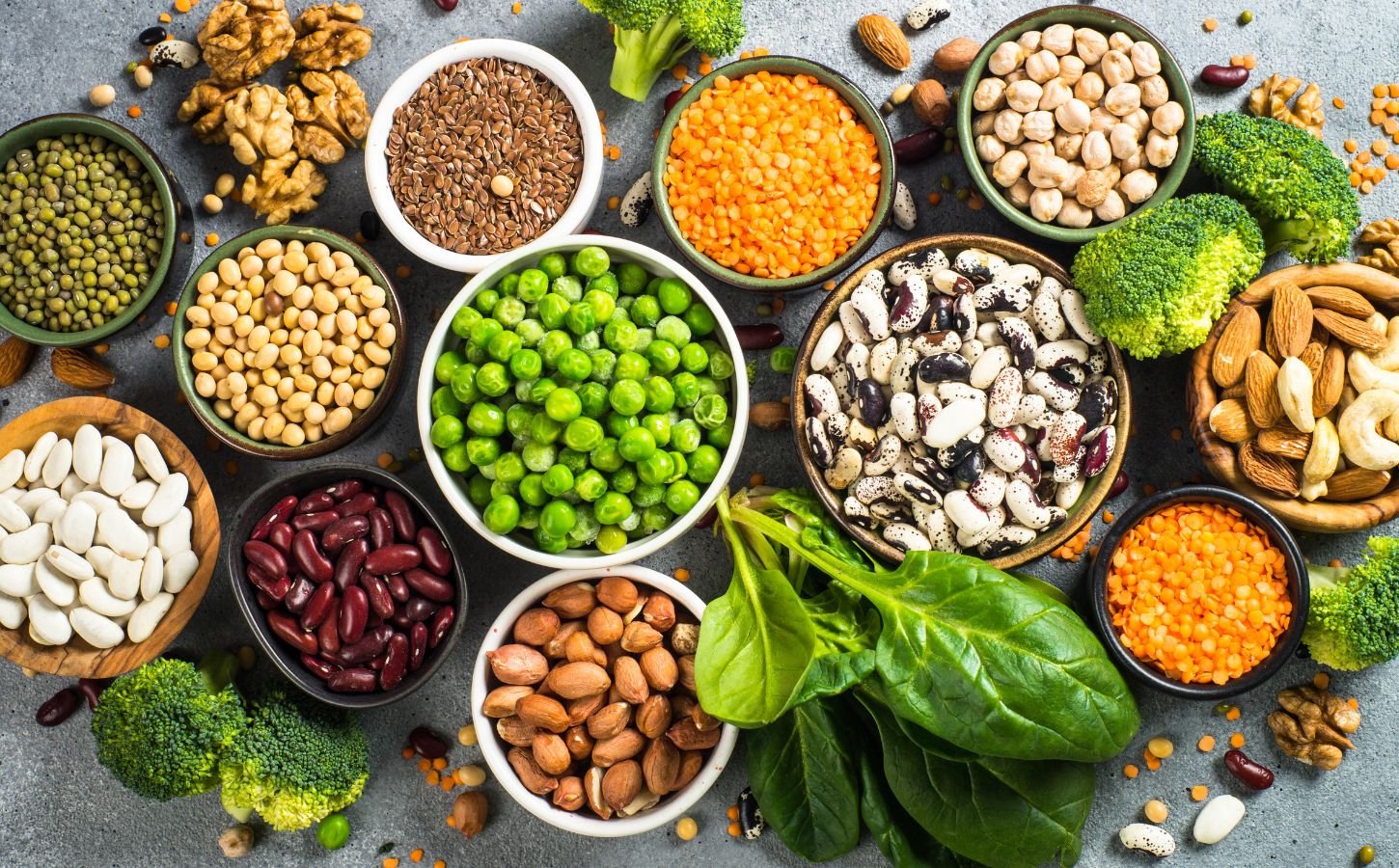All About Healthy And Balanced Food: Advantages of Taking On Plant Based Choices
The conversation bordering plant-based diet regimens has gotten substantial focus in the last few years. Several people are discovering the possible health and wellness advantages, dietary advantages, and environmental influences connected with these nutritional choices. As individuals end up being extra mindful of their food's influence on well-being and sustainability, questions emerge regarding the usefulness of adopting such a way of life. What details adjustments can one expect, and just how might these options reshape not just individual health yet additionally the world's future?
Comprehending Plant-Based Diet Regimens
Although many individuals connect plant-based diet regimens mainly with vegetarianism or veganism, these diets can encompass a large range of eating patterns that prioritize entire, minimally processed plant foods. Such diet regimens often consist of fruits, vegetables, whole grains, nuts, seeds, and legumes, while getting rid of or restricting animal items. This flexibility enables individuals to customize their nutritional options according to personal preferences and nutritional needs. Some might take on a primarily plant-based diet while still sometimes consuming meat or milk, commonly referred to as a flexitarian approach. The focus continues to be on integrating even more plant foods, which can cause a varied variety of flavors and meals. Comprehending these various analyses of plant-based consuming is essential for valuing its availability and allure in modern food society.
Health Perks of Plant-Based Foods
The health advantages of plant-based foods are substantial, using a nutrient density advantage that sustains overall health. Study suggests that these foods can improve heart health and wellness and play an important function in reliable weight administration. By including more plant-based alternatives, people may enhance their dietary choices and promote lasting health.
Nutrient Thickness Advantage
Nutrient density plays a necessary duty in the health and wellness advantages of plant-based foods, making them a compelling choice for those looking for a well balanced diet plan. Plant-based foods, such as fruits, vegetables, legumes, nuts, and entire grains, are often abundant in vital vitamins, minerals, and anti-oxidants while being lower in calories. This high nutrient density allows individuals to take in fewer calories while still satisfying their dietary demands. Additionally, these foods are loaded with nutritional fiber, advertising digestive system health and wellness and aiding in weight management. By integrating nutrient-dense plant-based options, consumers can improve their total health and wellness, sustain their immune systems, and minimize the danger of chronic illness. Ultimately, the nutrient density of plant-based foods underscores their relevance in a health-conscious lifestyle.
Heart Health Improvement

Weight Management Assistance
In enhancement to promoting heart wellness, a plant-based diet plan can considerably help in weight monitoring. This dietary strategy highlights whole foods such as fruits, vegetables, beans, nuts, and whole grains, which are usually lower in calories and greater in fiber contrasted to animal-based products. The high fiber content assists enhance satiation, minimizing general calorie consumption. Plant-based diet plans are often rich in necessary nutrients while reduced in unhealthy fats, making it less complicated to keep a healthy and balanced weight. Research suggests that people who adopt a plant-based way of living often tend to have reduced body mass indexes (BMIs) and experience more effective weight management contrasted to those who eat meat-heavy diet regimens. Subsequently, embracing plant-based options is a strategic choice for efficient weight administration
Nutritional Worth of Plant-Based Ingredients
Plant-based components are rich in vital nutrients, providing a diverse range of vitamins, minerals, and antioxidants that contribute to total health. A contrast of healthy protein sources exposes that while animal items are commonly seen as remarkable, several plant-based options give ample protein and other helpful compounds. Recognizing the nutritional value of these ingredients can help individuals make notified nutritional options.
Necessary Nutrients in Plants
Nutrient-rich ingredients located in plants offer a varied array of necessary vitamins and minerals that add considerably to overall health and wellness. These ingredients are rich in vitamins A, C, and K, which sustain immune function, vision, and blood clotting, specifically. On top of that, plants give important minerals such as calcium, magnesium, and potassium, critical for heart health, muscular tissue feature, and bone stamina. The existence of fiber in plant-based foods help digestion and advertises a healthy digestive tract microbiome. Anti-oxidants, discovered abundantly in fruits and vegetables, assistance battle oxidative stress and anxiety and reduce swelling. In addition, numerous plant foods are low in calories yet high in nutrients, making them an excellent selection for those seeking to keep a healthy and balanced weight while making certain suitable nutrient consumption.
Comparing Healthy Protein Sources
Protein sources differ substantially in their nutritional profiles, with plant-based web components using distinct advantages. Unlike animal healthy proteins, which usually include saturated fats and cholesterol, plant proteins tend to be lower in these undesirable components. Legumes, nuts, seeds, and whole grains are rich in crucial amino acids, fiber, vitamins, and minerals. For instance, lentils supply high healthy protein material together with substantial iron and folate, while quinoa is a full protein, offering all nine important amino acids. In addition, plant-based proteins are often accompanied by anti-oxidants and phytochemicals that sustain overall health and wellness. The change to plant-based protein sources not just enhances nutritional consumption however likewise lines up with sustainable dietary methods, lowering environmental influence and advertising long-term wellness advantages.
Environmental Influence of Plant-Based Consuming
As awareness of environment adjustment expands, numerous people are exploring sustainable nutritional choices that can greatly minimize their ecological impact. Plant-based eating has actually arised as a considerable factor to reducing greenhouse gas discharges, which are mainly associated with livestock production. The growing of fruits, veggies, legumes, and grains normally requires less resources, such as water and land, contrasted to pet farming. Additionally, plant-based diets can cause reduced deforestation, as less land is needed for grazing livestock or growing animal feed. By changing towards plant-based alternatives, consumers can sustain biodiversity and promote much healthier ecosystems. Overall, embracing plant-based eating not just benefits individual health and wellness yet likewise stands for a crucial step towards environmental sustainability and conservation efforts.
Conquering Common Misconceptions
While several individuals identify the benefits of a plant-based diet regimen, a number of misunderstandings frequently prevent them from fully welcoming this lifestyle. An usual belief is that plant-based diet plans do not have enough protein; nevertheless, countless plant resources, such as beans, nuts, and tofu, offer enough healthy protein. Furthermore, some think that this diet plan is pricey, when as a matter of fact, staples like beans, rice, and seasonal veggies can be rather budget-friendly. An additional misunderstanding is that plant-based eating is extremely restrictive, whereas it actually supplies a diverse range of foods and flavors. Lots of fret that a plant-based diet might lead to deficiencies, yet with appropriate preparation, individuals can get all needed nutrients, consisting of minerals and vitamins, while enjoying a broad range of scrumptious dishes.
Tips for Transitioning to a Plant-Based Lifestyle
Making the change to a plant-based way of living can be an improving experience, though it often calls for some guidance to browse the first modifications. People are motivated to start progressively, including more fruits, vegetables, beans, and whole grains into their dishes while decreasing meat and dairy consumption. Meal planning is essential; preparing an once a week menu can help ease the adjustment and stop final harmful options. Discovering cooking approaches and new dishes can additionally keep and improve the experience exhilaration regarding plant-based eating. Furthermore, signing up with support system or neighborhoods can offer motivation and share important ideas. Ultimately, remaining notified regarding nourishment warranties well balanced meals, preventing deficiencies while fostering a healthy, rewarding plant-based way of life.
Delicious Plant-Based Meal Concepts
Discovering delicious plant-based dish ideas can inspire people to accept a more nutritious diet regimen. One preferred alternative is a passionate quinoa salad, featuring cherry tomatoes, cucumber, and a spicy lemon-tahini clothing. An additional favorite is a tasty lentil stew, packed with carrots, celery, and great smelling herbs, best for a soothing supper. For morning meal, overnight oats made with almond milk, chia seeds, and covered with fresh berries Visit Your URL supply a nutritious start to the day. Additionally, a dynamic vegetable stir-fry with tofu and a range of colorful veggies can be a quick yet satisfying dish. Creamy avocado toast on whole-grain bread, sprayed with spices and seeds, supplies a simple yet savory snack. These dishes showcase the range and splendor of plant-based eating.

Regularly Asked Questions
Can a Plant-Based Diet Plan Give Sufficient Healthy Protein?
The inquiry of whether a plant-based diet regimen can offer enough protein prevails. Countless sources, consisting of legumes, nuts, seeds, and whole grains, can fulfill healthy protein requires effectively, sustaining a balanced and healthy diet regimen for people.
Are Plant-Based Diet Plans Appropriate for Kid?
The viability of plant-based diets for youngsters depends upon mindful preparation. Adequate nutrients have to be assured, consisting of healthy proteins, vitamins, and minerals. With proper guidance, such diet regimens can support healthy and balanced navigate here growth and development in kids.
Just how Do I Eat in restaurants on a Plant-Based Diet regimen?
Eating in restaurants on a plant-based diet plan involves looking for restaurants with diverse menus, requesting for alterations, and checking out vegan-friendly options. Preparation ahead and connecting dietary preferences can enhance the dining experience while maintaining nutritional selections.
What Prevail Allergens in Plant-Based Foods?
Usual allergens in plant-based foods include soy, gluten, nuts, and seeds - BBQ Sauces. People following a plant-based diet plan must understand these irritants and check out tags very carefully to avoid unfavorable reactions and ensure secure usage
Can Plant-Based Diets Aid With Weight-loss?
Research study shows that taking on a plant-based diet may assist in fat burning as a result of its generally lower calorie density and greater fiber material. This combination can improve satiety, assisting individuals handle their caloric intake effectively. Lots of individuals link plant-based diet regimens generally with vegetarianism or veganism, these diet plans can include a vast array of consuming patterns that focus on whole, minimally processed plant foods. Nutrient density plays a necessary function in the health and wellness benefits of plant-based foods, making them a compelling selection for those looking for a balanced diet plan. Plant-based diet plans have been shown to considerably improve heart health, as they often contain components that sustain cardiovascular feature. In enhancement to promoting heart wellness, a plant-based diet plan can substantially assist in weight administration. A common idea is that plant-based diet plans lack sufficient protein; nonetheless, various plant resources, such as vegetables, nuts, and tofu, offer sufficient protein.